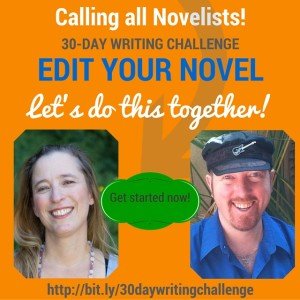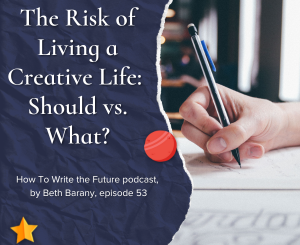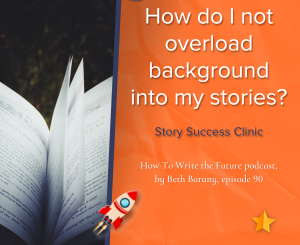Are You Ready to Clean Up Your Novel’s Beautiful Messy First Draft?
Are you ready to clean up your novel’s beautiful messy first draft?
As we approach the darkest time of the year here in the Northern Hemisphere, you may be thinking of letting go of the old to claim time and make space for the new.
Do you see the new projects, dreams, and desires approaching you, and you approaching them? Or is there too much clutter between you and them?
Clutter is an internal and external experience. Your house may be messy, papers in piles, books in stacks. Your mind may be full of chatter and your heart clouded with opposing desires.
I love a messy house and I’m always having internal tugs-of-war with myself. I’m not judging at all. I seriously love mess.
I’m a huge proponent of the messy, ebullient process of living as a creative. We are artists after all, us novelists.
What I am noticing is that there comes a time to clean up the beautiful mess, so that you can make space to create a new one.
I also love cleaning up mess.
Remember when you were a kid and you built a big block tower with delight and concentration, only to give it a good whack, and watch in satisfaction as the whole thing exploded and came crashing down. Then you gleefully built a new crooked tower, where you balanced a round piece on an edge. And destroyed that one too.
Writing a book is like that, okay, sort of.
Our first drafts are often big, beautiful, chaotic messes.
Editing is the time when we get to do the delicious task of cleaning up the mess we created.
Just like in your house, where you decide where the cups go — the hooks and the cupboard — the shelf and bedside table for the books, and the drawer or shelf for the pair of pants, you get to decide what goes where in your story.
You also get to decide its emotional impact on the reader.
When I start editing, that’s the first question I ask myself — wait, okay the second.
The first question I ask is: What did I create?
And the second is: What do I want it to be? Which relates to the emotional impact I want the book to have on the reader. Which relates to which genre it is. Now we’re back to: What kind of book do I want this to be?
What do I want this messy first draft to become?
Is it a romantic suspense, with its primary focus on the romance, and the secondary on suspense?
Or the inverse? Is it a suspense novel with romantic elements? In which case, when you edit you want to make sure this book is mostly suspense and secondarily romance.
I am talking about genre. I borrow this definition from Shawn Coyne (The Story Grid, site and book) because it’s simple and makes sense to me.
Genre is all about reader expectation.
Shawn’s exact quote from his site StoryGrid.com is:
“A Genre is a label that tells the reader/audience what to expect. Genres simply manage audience expectations.”
If readers want a happily-ever-after, we call that romance.
If readers what a who-done-it or sometimes a how-done-it, we call that mystery.
If readers want a good vs. evil in space with social commentary about difficult issues of society and humanity, we call that science fiction.
If it’s good vs. evil in a made-up land with magic, often with themes of power, control, and what does it mean to be a good person, we call that fantasy.
(Of course there are more nuances to genre than I’m stating here, and more genres too!)
If you need help determining what genre is your story, examine its ending. I look at how my novel ends to determine the genre.
My philosophy is that once you know what you’ve created, and decided what you want it to become (the genre), you can craft a plan of action to edit your book.
A friend recently shared with me how she got lots of feedback on her book, but didn’t know how to handle it. Where could she begin? And then what?
Our Edit Your Novel Bootcamp course that starts January 1st and runs through January 31st will address this process.
We’ve created a roadmap so that you can go from your first draft — perhaps a beautiful messy first draft — through a process to a polished draft.
In Week 1, we have you read through your entire book, assessing your strengths, weaknesses, and noticing what your book is. We give you detailed checklists in the areas of story structure, plot, pacing, character, emotional arc, and grammar/word usage, and more, so you can track what’s working and what you’d like to see more of. We also have you analyze your genre, so that you can create your “true north” as you go forward into the next stages of editing.
In Week 2, we guide you through a second pass to fix, change, rewrite, tinker with all things related to story structure, plot, and pacing, starting with making sure your scenes are strong. We don’t just leave you in the wild to fend for yourself. We have detailed learning modules (video, audio, PDF guides — all downloadable) at your fingertips so you can get a refresher on “what is a scene?”, for example.
In Week 3, we guide you through a third pass, this time focusing on all things character, point of view, emotional depth, and how to crack open the egg of “show, don’t tell.”
In Week 4, we’ll have you focus on grammar, spelling, word choice, and story metaphor, and give you tools to improve your writing in these areas.
This course comes with extensive learning modules, so that you can access specific areas of story craft whenever you’d like.
We also come together in a 4 live weekly webinars (call-in only option available) where you will have the opportunity to have your work critiqued (kindly and in bite-sized pieces). We believe the best way to learn editing concepts and processes is to see them done on your own work.
A lot of people think that using the proper editing methods will make their story great. But actually each person’s editing method is different. And the best thing for you to do is to determine your own editing process.
In this class, we give you the structure and process for you to customize and apply to your way of doing things.
If you don’t know your way of editing because you have never done it, then this class will give you a chance to experiment, try new things, and discover what does and does not work for you.
“In my one-on-one sessions with Beth, the vigorous review of my manuscript along with the masterful feedback has made me feel like I am in an MFA program. The welcoming and approachable style of both Beth and Ezra Barany leave you heartened and motivated.” — Hugh Tipping, Fantasy Author
If you’re ready to register for our January course, go here.
Dates: January 1-31, 2017
Where: Online (lifetime access) and in 4 live webinars
Register by December 28, 2016, 9pm Pacific:
http://30daywritingchallengefornovelists.bethbarany.com/
Investment: $179 (If you have a coupon, be sure to use it.)
Check out the course and see if it’s right for you.
We look forward to having you in the course!
Reminder: We close registration Wednesday, December 28, 9pm Pacific.
http://30daywritingchallengefornovelists.bethbarany.com/
If money is a factor, and you want to join this class, contact me for payment plan options. If this course is right for you, let’s make it happen.
Questions? Contact Beth or ask in the comments below.
Want other tips on editing your novel? Check out other Writer’s Fun Zone articles by Beth Barany and guest authors on the topic here.
(Updated for our EDIT YOUR NOVEL 2017 course!)







